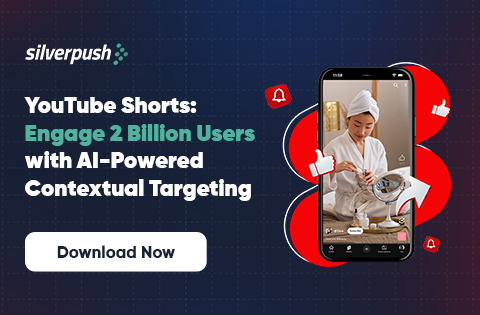The Olympics: More Than Just A City-Wide Event, A Global Marketing Opportunity | 14 Mar, 2024

Remember the electrifying moment when Michael Phelps clinched his 8th gold medal by a mere 1/100th of a second? Or the breathtaking sight of Simone Biles flawlessly landing her Yurchenko double pike? With such iconic moments set to captivate audiences worldwide, the upcoming Summer Olympic Games in Paris present an unparalleled opportunity for brands to align themselves with these historic and inspiring feats in sports.
The allure of the Olympics is undeniable. Every four years, the world unites to witness the pinnacle of athletic achievement, with the host city taking center stage. From Barcelona’s cultural explosion in 1992 to Rio’s awe-inspiring spectacle in 2016, each game has left a lasting impression.
Paris 2024 promises to be no different. According to Euromonitor International, Paris anticipates welcoming an additional 3 million visitors during the Games generating a surge in revenue for local businesses.
Welcome to the kickoff of our four-part Olympics blog series! In Series 1, we’ll delve into five compelling reasons why marketers worldwide must begin gearing up to position themselves as Olympic contenders.
Olympics Advertising Stats to Kickstart Your Gameplan
Audiences Atop the Leaderboard
According to NBCU, The Summer Games held in Tokyo were the most significant mass audience event of 2021 and 2022, drawing in diverse viewership from various demographics. In Paris, the upcoming Games are anticipated to attract four times the streaming minutes compared to Tokyo, making it an even more substantial platform for brands to connect with consumers. Unlike niche events, the Olympics appeal to a wide range of audiences, including men, moms, millennials, and people from diverse ethnic backgrounds.
Brands that choose to invest in commercial time during the Olympics stand a higher chance of capturing consumers’ attention. However, seizing this opportunity requires both strategic planning and tactical execution.
The Olympic Halo Helps Outpace the Competition
The Tokyo Games are heralded as the most digitally accessible Games in history, poised to surpass the coverage and engagement of the lackluster TV ratings seen during the Rio 2016 Games. Here are some key digital highlights:
- 61% of UK population (35 million) British viewers tuned in to watch the 2016 Rio Olympics on BBC.
- An average of 15.5 million viewers saw 2021 Tokyo Olympics in primetime coverage in the U.S.
- Over 218,000 coverage hours across 250+ digital platforms, doubling the TV coverage of Rio 2016.
- More than 9 million hours of content streamed on the Olympic player, with a daily average of 1 million unique viewers for live streaming and on-demand content.
- NBC alone exceeded 2.5 billion live streaming minutes, marking a significant increase compared to all previous Olympic Games combined.
- Record-breaking social media engagements, with over 4 billion impressions generated.
Here Are 5 Reasons Why Marketers Around The World Shouldn’t Wait To Capitalize On The Olympic Spirit
Paris Spreads The Game Across The Nation
From Handball and Basketball matches near Lille to soccer showdowns in Bordeaux, Lyon, and Nice, along with sailing competitions off Marseille’s shores and shooting contests near the scenic Loire Valley at Châteauroux, the Paris Games are a nationwide spectacle. Each venue will draw its own crowd of spectators keen on exploring local attractions between events.
Each location will attract enthusiastic spectators eager to explore local gems when not cheering on athletes. Tahiti, the first overseas territory to host an Olympic event, adds an exotic twist, offering breathtaking, thrilling jungle adventures, and even wine tours.
Olympic Visitors Are Adventurous Explorers
Olympic attendees bound for events in Paris will undoubtedly take advantage of ample opportunities to explore the capital. Plus, with seamless access to Western Europe’s most expensive train network, their journey doesn’t have to end there.
Historical data from past Olympics reveals a significant portion of visitors’ expenditures occurring beyond the host city. For instance, during the 2012 London Games, the average visitor extended their stay by 22% compared to typical tourists visiting the UK, allocating 27% of their spending to regions outside of London.
Paris In Motion, Opportunity On The Move
It’s not just international visitors who will venture beyond Paris during the Games. Recent Olympics have witnessed a trend of internal migration, with residents capitalizing on the opportunity to rent out their homes and explore other regions of the country.
Vacation rental companies like Airbnb alone expect to facilitate over half a million Parisians in renting their properties during the Games. These enterprising individuals, seeking new experiences in different parts of the country, will inject fresh energy into local shops, restaurants, and cafes.
Fans will be there in spirit via devices, apps, and channels
Fans are eagerly anticipating the upcoming Olympic Games! Over the past year and a half, spurred by a global pandemic, we’ve witnessed a rapid surge in consumers’ embrace of digital-first TV, particularly through connected TV, and subscriptions to streaming services. However, it’s worth noting that a considerable portion of the coverage will be consumed in a time-shifted manner due to the significant time zone difference between Tokyo and regions like the US (13 hours ahead) and the UK (8 hours ahead).
Sports Participation Takes Center Stage
Every Summer Olympics captures the attention of a global audience, consistently exceeding 3 billion viewers, solidifying its position among the most-watched sporting events around the world. The Games provide a platform for sports often underrepresented in mainstream media, showcasing the athleticism and dedication required in disciplines like rowing, kayaking, climbing, and surfing.
Additionally, the Olympics consistently fuels a surge in participation rates for established sports like boxing and athletics. Notably, after the 2012 Games, bike retailers in the UK reported a remarkable 15% jump in sales source (Cycling Weekly), highlighting the global impact of the Olympics on sporting goods, venues, and local clubs.
Final Take
The Paris 2024 Olympics offers a unique opportunity for businesses worldwide to reach a vast, engaged audience. By understanding the event’s wider footprint & implementing strategic marketing initiatives, businesses can transform themselves into Olympic contenders, regardless of their location. This is the debut article in our series, dedicated to unlocking the potential of the Paris 2024 opportunity, no matter where you are. Stay tuned for the next chapters as we delve into seizing key moments in the Olympic Games.

BLOGS
Silverpush Partner Spotlight: Moka Goto, Digital Planner at Dentsu Digital Global Center
This week, the Silverpush team spoke with Moka Goto, Digital Planner at Dentsu Digital Global Center, to discuss how YouTube advertising is evolving towards 2026. From shifting planning mindsets away from pure scale towards context and moments to rethinking how performance is evaluated, Moka shared how Dentsu Digital is ...

BLOGS
What Indonesians Actually Watch During Ramadan and Why Context Decides Which Brands Win
Every year, Ramadan quietly resets how Indonesia consumes content. Days start earlier. Nights stretch longer. Families gather more often around shared screens. What people watch changes, but more importantly, why they watch changes too. For brands, this is where Ramadan becomes deceptive. The numbers look incredible. According to the Silverpush ...

BLOGS
The Ultimate Advertising Calendar for 2026 Tentpole Events
In a world where trends change in the blink of an eye, relevance often feels like some sort of rat race. That is where tentpole events come in: these are key dates and milestones with cultural or industry importance that manage to grab people’s attention, be it the FIFA World ...







